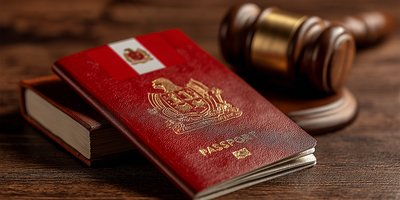
Sustainable Travel in Peru: Community, Conservation & Protected Areas
Make your Peru trip count for the planet with community stays, eco‑lodges and visits to protected areas like Pacaya‑Samiria and Huascarán National Park.
Found 6 results related to this question
Our monitoring service tracks ticket cancellations and new releases 24/7. Get notified instantly when tickets for your preferred dates become available.
Staying in eco lodges in Peru, especially near iconic sites like Machu Picchu, plays a vital role in conservation efforts. These lodges are designed to minimize their environmental footprint while offering travelers a unique experience immersed in nature. By choosing eco-friendly accommodations, visitors directly support sustainable practices that protect the biodiversity of the region.
Many eco lodges operate on principles such as waste reduction, water conservation, and energy efficiency, which are essential in preserving the delicate ecosystems of the Andes and Amazon. For instance, some lodges use solar panels for energy and implement composting systems to manage waste. This not only reduces pollution but also serves as a model for local communities.
Additionally, many eco lodges engage in reforestation projects and support local wildlife conservation initiatives. Travelers can participate in community-led conservation efforts, such as tree planting or wildlife monitoring, providing a hands-on approach to protecting Peru's natural heritage.
Staying in these lodges also allows tourists to connect with local cultures. Many eco lodges employ local staff and collaborate with indigenous communities, ensuring that tourism benefits the people who have lived in these areas for generations. This cultural exchange enriches travelers' experiences while fostering respect for local traditions.
When planning your stay, consider lodges that offer guided tours to sites like Machu Picchu with a focus on environmental education. This not only enhances your understanding of the region but also promotes responsible tourism practices.
For a more enriching experience, opt for lodges that provide opportunities for visitors to learn about traditional farming practices, medicinal plants, and local crafts. By supporting these initiatives, you are contributing to the preservation of cultural heritage alongside natural conservation.
Travelers should also be mindful of their impact. Choosing to travel during off-peak seasons helps reduce strain on local resources and minimizes environmental impact. Always strive to leave no trace and respect local wildlife during your visits.
In summary, choosing to stay in eco lodges in Peru not only enhances your travel experience but also supports vital conservation efforts that protect the stunning landscapes and rich cultures surrounding Machu Picchu.

Make your Peru trip count for the planet with community stays, eco‑lodges and visits to protected areas like Pacaya‑Samiria and Huascarán National Park.

A practical, up‑to‑date guide to key Peruvian laws that affect travelers: visas and overstays, ID and police checks, customs and currency declarations, driving rules, alcohol and drug laws, drones and photography, protected areas, and more.

Comprehensive guide to sustainable tourism in Peru. Eco-friendly practices, community-based tourism, conservation efforts, and responsible travel strategies.

A practical, 24/7-ready guide to emergencies in Peru: who to call (105/106/116), how to find hospitals and English-speaking help, what to do after theft or a lost passport, disaster prep, and how embassies can assist.

Complete Peru transportation guide covering trains, buses, domestic flights, and regional travel options. Navigate Peru's diverse geography efficiently and safely.

Complete guide to sustainable tourism at Machu Picchu. Responsible travel practices, conservation efforts, community support, and eco-friendly travel tips.
Set up instant alerts for ticket availability and never miss your chance to visit Machu Picchu.
Get Alerts